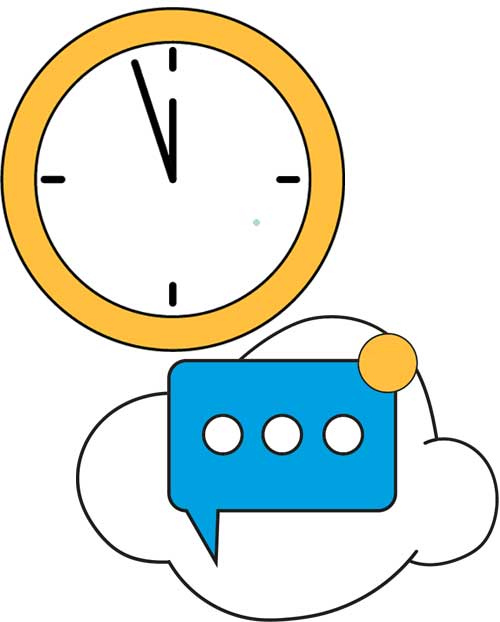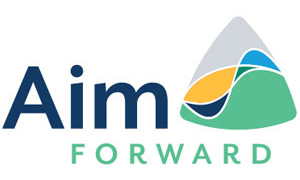Autism
Autistic people’s experiences are unique and wide-ranging. A personalised autism assessment and coaching can help you with strategies that can have a lasting, positive impact on how you experience your work, studies and everyday life. Below are some common questions about autism.
Needs assessments
If you know or believe you have autism, our one-to-one online needs assessments aim to understand how you currently learn and work. We’ll then create personalised strategies and recommend assistive technologies that will help you excel.
What is Autism?
Autism is an abbreviated term for autism spectrum disorder (ASD), though many people across research, healthcare and the general population now prefer not to call it a disorder. In medical terms, autism is a neurodevelopmental condition. This means that it first appears while the brain is still developing, either before birth or during early childhood.
Historically, autistic people have been stereotyped as struggling to empathise with other people and having advantages in formula-based skills such as maths, but new research and accounts from autistic people have challenged this. In fact, many autistic people experience high levels of empathy. An autism assessment can help you explore traits you may experience. There are many factors involved in the development of autism, including our genes and environment.


Autistic people’s experiences are unique and wide-ranging, but often autistic people find they have similar experiences with:
- Challenges in social communication and interaction
- Repetitive and restrictive behaviour
- Sensory differences (such as sensitivity to specific textures, sounds or smells)
- Highly-focused interests or hobbies
- Regulating emotions
- Feeling overwhelmed to the point of ‘shutdown’ or ‘meltdown’
You may also hear some people talk about Asperger’s syndrome instead of autism. This used to be a diagnosis which indicated a ‘less severe’ form of autism. In 2013, the term ASD replaced all other diagnoses to recognise that autism can present in various ways with different levels of impact on people’s lives.
General awareness and understanding of autism is improving, and we know from working with autistic and neurodiverse people for more than 10 years that with personalised strategies, practical solutions and a supportive network, they can excel in everyday life.
We know that some people may have had their autism missed when they were at school or university. This is because we used to have a more narrow, stereotyped understanding of autism and how it presents in different people. Many autistic people have also developed successful coping strategies, which helped to mask these difficulties in their learning, at work or in their social lives. If you are an adult that has just started to explore autism and whether it might make sense with your experiences in work and learning, you might find this blog post helpful.
Autism diagnosis
What are the diagnostic criteria for autism?
Every autistic person experiences autism differently, especially because autism often co-occurs with other neurodivergence like ADHD, mental health conditions like anxiety, and health issues like gastrointestinal disorders or hyper-mobility.
For a diagnosis in the UK, autism specialists largely base their decisions on the DSM-5, a manual that is used in many countries for diagnosing neurodevelopmental and mental health conditions.

In the DSM-5, the main diagnostic criteria for autism are:
- Persistent deficits in social communication and social interaction across multiple contexts
- Restricted, repetitive patterns of behaviour, interests, or activities
- Symptoms must be present in the early developmental period (but may not become fully manifest until social demands exceed limited capacities or may be masked by learned strategies in later life)
- Symptoms cause clinically significant impairment in social, occupational, or other important areas of current functioning
- Symptoms are not better explained by intellectual disability or global developmental delay
It is important not to limit our understanding of autism to diagnostic criteria, because they are only updated every few years. Research and accounts from autistic people continuously update and improve our understanding.
How do you get an autism assessment in the UK?
In the UK, specialist training is needed to be able to diagnose autism. Usually, the diagnosis will be made by medical professionals such as psychiatrists or clinical psychologists. For children, multiple specialists are typically involved in a diagnosis, including specialist nurses, occupational therapists and neurologists.
A referral from your GP or school is the way that most people will be able to access an autism assessment. Some people may also be able to get a referral if they already see another healthcare professional, such as a psychologist, for another health condition.
Sometimes getting a referral can be challenging, because many autistic people learn to ‘mask’ their autistic traits to fit in with social or professional norms (unofficial ‘rules’ of behaviour). This often means that others don’t observe them as being any different to non-autistic people. A lack of accurate awareness about the different ways that autism presents, even in medical and educational settings, can also be a barrier for referral. That is why education about autism is important, and why the autistic community also embraces self-diagnosed autism.
If you are an autistic person without a diagnosis, you can still get an autism assessment with Aim Forward. Needs assessments aim to understand how autism impacts your work, study and everyday life, then create personalised strategies and practical solutions to help you learn and work your way. They are provided by experienced assessors who have worked with hundreds of neurodivergent people and understand that every individual has a different experience and unique needs.
Understanding how you work best and having personalised strategies to support you can have a lasting, positive impact on how you experience life day-to-day and achieving your goals.
What are the benefits of an autism diagnosis?
Identifying yourself as being neurodivergent does not require a diagnosis and is supported by many in the neurodivergent community. Having said this, some people feel that they would benefit from having specific terms for their experiences and access to specific treatment options. An autism diagnosis can also make it easier to understand your own strengths and difficulties, in order to discuss reasonable adjustments at work or Educational Health Care (EHC) plans at school. This is because autism is recognised as a disability under the Equality Act 2010. It can also give you access to government support schemes such as Access to Work and Disabled Students’ Allowance.
How much is a private autism assessment?
The cost of private autism assessments including the diagnosis and report in the UK can be around £2000. Some private clinics in the UK have also accepted NHS patients through the Right To Choose scheme.
Aim Forward do not offer diagnostic assessments for autism, but our needs assessments are available to anyone, with or without a diagnosis. The cost of our needs assessments are £600 (including VAT).
Who can diagnose autism?
Only specialists can diagnose autism in the UK: these are usually psychiatrists and clinical psychologists, but they can be supported by a wider team including specialist nurses, occupational therapists and neurologists.
If you are an autistic person without a diagnosis, you can still get a needs assessment with Aim Forward. Needs assessments aim to understand how autism impacts your work, study and everyday life, then create personalised strategies and practical solutions to help you learn and work your way. They are provided by experienced assessors who have worked with hundreds of neurodivergent people and understand that every individual has a different experience and unique needs.
What is the difference between a screener, a diagnostic assessment and a needs assessment for autism?
A screener is a checklist or questionnaire that you complete yourself, usually online, which is designed to indicate whether personal difficulties or traits may be the result of a condition like autism. The results do not form a diagnosis, they are only indicative. There are many different types of screening tests, and they can be a useful place to start when you are in the early stages of exploring your neurodivergence, but they cannot give you a diagnosis or offer insight into your experiences, and they are not always considered accurate.
Diagnostic assessments for autism are usually provided by psychiatrists or clinical psychologists in the UK because of the level of specialist knowledge required, but they are often supported by other specialists such as specialist nurses, occupational therapists and neurologists. Diagnostic assessments for autism will often involve questionnaires and interviews with the autistic person and someone who spent a lot of time with them when they were younger, like a parent or carer. This is because autism is always present in childhood, even if it was not identified at the time, which is more likely to be true for autistic women and girls.
Needs assessments aim to understand how autism impacts your work, study and everyday life, then create personalised strategies and practical solutions to help you learn and work your way. They are provided by experienced assessors who have worked with hundreds of neurodivergent people and understand that every individual has a different experience and unique needs.
At Aim Forward we provide needs assessments, find out more by clicking here, but we do not provide diagnostic assessments for autism.
Autism support
What other types of support are available for autism?
Autism can have a wide-ranging and individual impact on each autistic person’s life, so there is no single therapy or support programme for autistic people. Most treatment recommended by the NHS will involve counselling or therapy, speech and language support or an assessment with an occupational therapist (or a combination of two or more of these things).

Many people come to us thinking they want a diagnosis, but often what makes the biggest difference to their everyday lives are personalised solutions and strategies that they can put into action.
Choosing whether or not to pursue a diagnosis is a personal choice. But if you want to find solutions to shape your future, we created our needs assessments, based on 10+ years of experience in neurodivergence and mental health conditions. We work with you to create personalised strategies that focus on how your autism is impacting you, and what you can do differently to excel in your work, studies and everyday life.
The needs assessment is personalised to you, but it could cover areas like:
- Reading and research – to what extent do sensory sensitivities impact how well you can process and retain information?
- Writing and composition – how easy do you find it to express your thoughts clearly when you’re writing and organise them on the page?
- Meetings, presentations and note-taking – which sensory or social aspects of meetings do you find most challenging, to the point that you feel overwhelmed and miss the things being shared?
- Time management and organisation – how easy do you find it to be flexible about scheduling and switching tasks at short notice if it’s needed?
- Revision and exam preparation – how much do anxiety and sensory overload impact how well you can hold and retain information for future use?
- Environment – how easy do you find starting work and staying focused in environments with sensory distractions like noise or smells?
- Wellbeing – how does your autism impact your energy levels, mood and self-esteem?
- Potential reasonable adjustments – what changes to the way you work and learn, like having your tasks prioritised, would help you in your day-to-day activities?
It also explores assistive technologies that might support you day-to-day, like:
- Wellbeing and mental health software or apps – helping maintain structure or routine in a busy daily schedule
- Text to speech software – reading content as you hear it spoken to you can help process and retain information
- Speech to text software – letting your ideas flow into words on a page, without worrying about typing or spelling
- Mind mapping software – capturing your ideas quickly, while the software structures documents for you in programmes like Word or Powerpoint to avoid “blank page fear” and procrastination
- Spell checking software – less time worrying about red lines and more time on content with sophisticated spell checks
- Grammar checkers – focusing on your content, while the software ensures consistency and professionalism in the text
- Note-taking software and apps – reducing the impact of inattention or distractions in meetings with automatic note-taking
After your needs assessment, Aim Forward can provide coaching with your assessor to support you in building lasting habits, helping you to adapt and refine your strategies based on what works for you day-to-day.
The ultimate aim of our needs assessments is to provide solutions to shape your future, empowering you with confidence in and knowledge about your neurodivergence so that you can excel in everyday life.
What are the benefits of a needs assessment for autism?
Understanding how you work best and having personalised strategies to support you can have a lasting, positive impact on how you experience life day-to-day and achieving your goals. Our one-to-one online needs assessments aim to understand how you currently learn and work, then create personalised strategies and recommend assistive technologies that will help you excel.
For over 10+ years we have seen needs assessments transform the way autistic people can excel in their studies, work and everyday life, and clients have reported increased:
- Wellbeing
- Productivity
- Career opportunities
- Grades
Our needs assessors hold a variety of disability-specific qualifications, alongside decades of experience working with neurodivergence, mental health conditions and other disabilities including lived experience. This puts us in a unique position to provide needs assessments that recognise co-occurring conditions (where you experience more than one condition at the same time). Over 20% of our needs assessment clients have two or more formally diagnosed conditions, but many more experience undiagnosed traits or symptoms. For example, you may have a diagnosis of autism, but also be experiencing symptoms of anxiety and depression. Our needs assessments focus solely on you and your unique needs.
How long does a needs assessment for autism take?
A needs assessment with Aim Forward usually takes between 1.5 to 2 hours, but you are able to take breaks whenever you need them. During the needs assessment, you will work with one of our friendly, experienced assessors to understand how your autism affects your work, studying and everyday life. This is an informal meeting that you don’t need to prepare for, and doesn’t involve any testing: all you need to expect is a structured discussion that will help your assessor understand what strategies and practical solutions might be helpful for you.
How much does a needs assessment cost?
A needs assessment with one of our assessors costs £600 (including VAT). This cost includes your personalised report, which includes personalised strategies for working and learning your way, as well as any assistive technology recommendations your assessor has discussed with you in the assessment.
What is it like having an autism needs assessment with Aim Forward?
If you’d like a personal perspective on what it’s like to work with us, one of our clients kindly agreed to share their experience: you can read it right here.
FAQs
Have more questions? Ready to start shaping your future? Our friendly support team is here to help you.
Being autistic I always wanted to create my own path in life, but everyone needs a nudge in the right direction now and then. I wasn’t progressing on my career path, but the team at Aim have helped me see certain blind spots and made recommendations to speed up tasks that were taking me too long. It’s helped my productivity, but also my ability to communicate and interact with my colleagues.
How do I know if I’m autistic?
Read more about autism diagnosis by clicking here. Or contact us for a diagnostic assessment here.
What support do you offer for autism?
Whether you choose to get a diagnosis of autism or not, we know that understanding how autism impacts you, how you work best and having personalised strategies to support you can have a lasting, positive impact on how you experience life day-to-day and achieving your goals.
We also know that autism can often occur alongside other neurodivergent or mental health conditions, so Aim Forward can provide needs assessments where you will work with an experienced assessor to understand how your autism and anything else you might be experiencing impacts on your work, study and everyday life. Together you will create personalised strategies and practical solutions to help you learn and work your way, whatever life looks like: freelancing, employment, studying A-levels or GCSEs, at college or university.
Learn more about our needs assessments by clicking here and follow-on coaching here.
What are reasonable adjustments for autism?
Contact us here to find out more about needs assessments. Needs assessments can look at potential reasonable adjustments for your autism in your work or studies.
